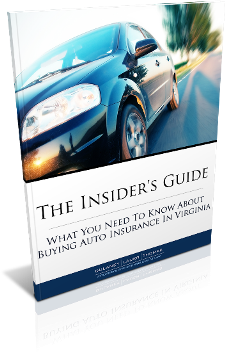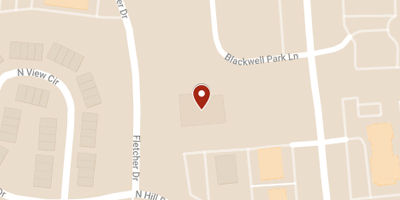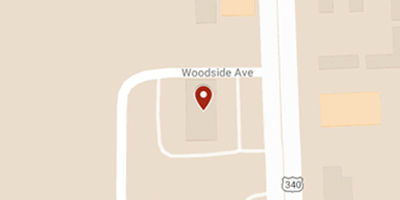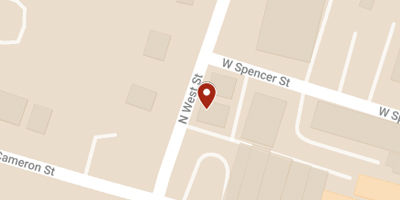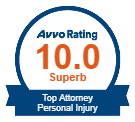.jpeg) Being involved in an automobile accident is bad enough, but dealing with insurance companies and trying to get your car or truck repaired to your satisfaction can truly drive you to distraction. You may be asked to use a repair shop you are not familiar with, you might find that your car will be repaired with aftermarket parts, and you may be dismayed to find that your vehicle has lost value after being involved in an accident. These frustrations are especially troubling if the accident wasn’t your fault. You might feel like the guilty party’s insurance company is taking advantage of you. In order to make things as easy as possible for you after your accident, we offer you the following repair tips.
Being involved in an automobile accident is bad enough, but dealing with insurance companies and trying to get your car or truck repaired to your satisfaction can truly drive you to distraction. You may be asked to use a repair shop you are not familiar with, you might find that your car will be repaired with aftermarket parts, and you may be dismayed to find that your vehicle has lost value after being involved in an accident. These frustrations are especially troubling if the accident wasn’t your fault. You might feel like the guilty party’s insurance company is taking advantage of you. In order to make things as easy as possible for you after your accident, we offer you the following repair tips.
Where Should You Have Your Car Repaired?
Many people want to use a mechanic they know and trust after their vehicle has been damaged in an accident, however, the insurance adjuster you work with will likely want you to use one of their preferred shops. Before you agree, do a little homework and make sure the proposed shop has a good reputation and will perform the repair to your satisfaction. You can ask around in your community about the shop, check out reviews on Google to make sure they have no complaints, and you can even ask your own mechanic what they think.
Alternatively, you can ask the insurance company if you can use your own mechanic for the repairs. While some companies want to steer you towards shops in their Direct Repair or Referral Program (DRP)—to save time and money, of course—they will still allow you to select the body shop of your choice if you ask. Don’t discount the importance of a good body shop. Shoddy repairs can not only cause problems for you but can negatively impact your car's value and make it harder to sell later on for a fair price.
What Kind of Parts Will Be Used?
Once you’ve hashed out where your car will be repaired, you should find out if the insurance company requires the use of aftermarket or OEM (original equipment manufacturer) parts. Confused about the difference? If you’ve never had to have a car repaired before, then this is probably new territory for you.
OEM parts are generally sold by your vehicle’s manufacturer, although they are often manufactured by a third party. One of the benefits of OEM parts is that they come with a warranty or guarantee, so if something goes wrong, you have recourse. Aftermarket parts can mean many things. They could be virtually identical to OEM parts, as they are often manufactured by the same third party, or they could be low-quality parts manufactured in a foreign country. If you’re not sure whether to request OEM parts or be satisfied with aftermarket parts, consider the following:
- Type of repair. If the repairs on your vehicle are cosmetic or fairly minor, then aftermarket parts might be perfectly fine. However, if the repairs are integral to the safety or functioning of the vehicle, then you may want to consider using OEM parts, so you’re assured of the quality.
- Resale value. If you plan to sell your vehicle in the future, you may want to consider the impact of using non-OEM parts on your vehicle’s resale value. If you lease your vehicle, then using aftermarket parts may invalidate your lease agreement, so be sure to check before agreeing to their use.
- Certification. If you agree to use aftermarket parts, make sure they have been approved by the Certified Automotive Parts Association (CAPA).
Finally, if you have your heart set on using OEM parts and the insurance company is reluctant, you could find out if they’ll allow their use if you pay the difference. However, if the insurance company absolutely refuses to let you use OEM parts, then talk to your auto accident attorney for advice.
Is My Repaired Vehicle Now Worth Less?
We’ve all heard of CarFax and similar vehicle tracking programs. Once your car has been in an accident, dealers and buyers will find out about it through one of these programs, and many people will consider it less valuable than a comparable vehicle with no accident history. Consider this: if you were presented with two nearly identical vehicles that were priced the same, and the only difference was that one of the cars had been involved in an accident, which one would you pick? Regardless of the nature of the accident, most people are leery of purchasing a car that has previously been in an accident—especially if it costs the same as one that has not. Even if you were willing to buy the vehicle that had been in an accident, you would probably try to negotiate down the price. Perceived loss of value is just one way that your car can suddenly be worth less after an accident.
Another way your vehicle can lose value is if the insurance company either intentionally or unintentionally does not pay for all the repairs to be performed as necessary. This can lead to poorly installed aftermarket parts or necessary repairs that aren’t completed at all. Probably the most obvious way to reduce a vehicle’s value is to use aftermarket parts instead of OEM parts. In this case, you can talk to the insurance company and find out if they mandate the use of aftermarket parts or if they will allow you to use OEM parts. As we mentioned previously, insurers may allow you to use OEM parts, however, you might have to pay the price difference.
The final way that your vehicle can lose value after a repair is if the repairs themselves are done poorly. Most people know that the quality of repair shops and the skill of mechanics vary wildly. If you’re unfortunate enough to have your car repaired by a less-than-stellar mechanic, you could see your vehicle’s value drop. Examples of poor-quality work include paint that does not quite match, parts that don’t quite fit, rattles, squeaks, and wind leaks. This means it is very important to ensure that the work on your vehicle is performed at a reputable shop, which is covered in the first section of this article.
The bottom line is that it can be very difficult to get an insurance company to pay up if you believe your car is now worth less because of an accident. The laws for diminished value vary by state, so your best bet is to speak with your attorney to find out your options.


